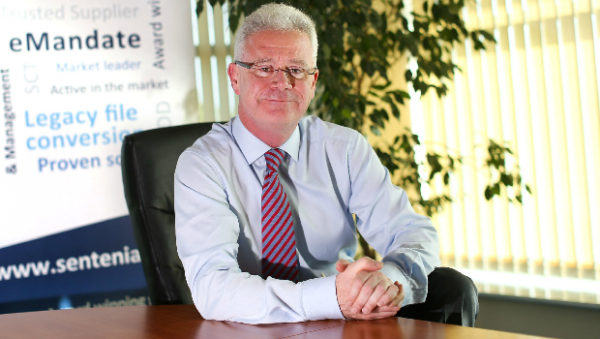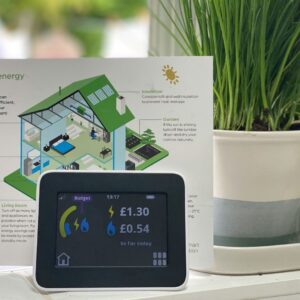Nuapay have been making waves in the ecosystem over recent months with recent partnership announcements to boot. Open Banking Expo Magazine sat down with its Chief Executive Officer, Sean Fitzgerald.
What does Nuapay do?
Nuapay is the industry’s leading Open Banking solutions provider. Its platform hosts a complete range of Account-to-Account (A2A) solutions together under one roof – Open Banking payments (PISP), SEPA & BACS direct debits, and outbound credit transfers. Spanning incoming and outgoing payments in the UK and Europe, Nuapay’s solutions negate the need for payment cards.
What sets you apart from your competitors?
Nuapay uniquely provides the full set of A2A payments under one roof – Open Banking (PISP), Direct Debit (SEPA and BACS) and payment accounts with SEPA Instant and FPS.
Our technology platform was developed by Sentenial, Nuapay’s parent company that provides payment services to many major banks in the UK and Europe. This means Nuapay’s platform has robustness and resiliency that few competitors can match.
The platform was designed from the ground up to power our partners – ranging from large banks or PSPs which white-label our Account-2-Account payment solutions, to small payment gateways and ISVs which integrate our solutions into their own packages to distribute to their customers. This ability to partner at scale requires functionality that few competitors have.
In addition, Nuapay’s Open Banking solution enables instant payments 24/7 by issuing corporate customers with a payment account. These provide an integrated solution for companies to reconcile incoming payments and send outgoing payments via A2A networks in real-time via APIs – as opposed to traditional batch processing solutions which require end of day file uploads. Most PISPs only notify on initiation, causing friction in businesses’ dispatch processes. With Nuapay, merchants are notified upon payment initiation and receipt of funds, enabling them to provide an improved service. Uniquely, Nuapay technology uses the functionality of our current accounts to automatically provide instant refund capabilities to Open Banking customers.
Simply put, there are no competitors providing the same level of service that we offer in the market today.
How has Nuapay evolved since its inception?
Nuapay evolved out of Sentenial, which I founded first as a small technology company based in Ireland to serve SMEs with frictionless payments technology. I realised that banks were also struggling with the same basic necessities, so made the decision to expand Sentenial Europe-wide. Soon, we were working with some of the biggest payments players in Europe, including Barclays, Visa, and Worldpay to name a few. Sentenial now processes more than €40bn in transaction value per year.
Following regulatory pressure to introduce competition and innovation into the payments and banking markets (PSD2), we saw an opportunity to launch Nuapay. We have pioneered the use of Open Banking payments and real-time corporate current accounts.
Nuapay has recently teamed up with Cybersource, Visa’s global payment management platform, to expand Visa’s offering in Europe’s growing subscription market. What does this mean for Nuapay and the wider payments ecosystem?
Far more goods and services are now being provided on a subscription basis rather than a one time fee for unlimited access. COVID19 has accelerated this trend, with 85% of subscription businesses currently maintaining or growing membership. The sector is projected to continue its rapid growth, with Gartner predicting that by 2023, 75% of organisations selling direct to consumers will offer subscription services.
As such, consumer subscriptions are a huge opportunity for European businesses. Nuapay teaming up with Cybersource will enable their merchant base to take advantage of the sector’s growth and support the continent’s economic recovery.
What have been the highlights of 2020 for Nuapay?
Where to start! 2020 has been a fantastic year in terms of commercial partnerships and the increase in Open Banking use by UK consumers.
Since January, we have begun working with OneBanks on human banking and financial inclusion; Cybersource on subscription payments; and Elavon, GalaTech and Fusion Telecom on bringing Open Banking payments to their customers. We’re also proud to be partnered with Felloh!, a social enterprise that aims to transfer £1bn from reduced payment processing costs to charities and social enterprises. By using our Open Banking payments platform, retailers and consumers can donate effortlessly via the Felloh! Button. It’s a new and better payment method for consumers and retailers with a social conscience.
Another milestone for Nuapay was when we joined the UK Government Crown Commercial Service and were appointed to deliver Payment Initiation Services to the UK Public Sector.
For the industry in general, we were delighted to see the OBIE’s latest figures showing that over two million UK customers are now using Open Banking-enabled products. It’s testimony to the value that this technology is adding to our banking and payment ecosystems.
How has COVID19 impacted Nuapay and its customers?
It has certainly been a strange time for everyone but we consider ourselves very fortunate to be in the payments space which has fared relatively well. The shifts to digital payments and open banking have been accelerated by COVID and many of our clients and partners are embracing the opportunity to improve the way they do things.
How do you think the Open Banking market will evolve in 2021?
Awareness of Open Banking’s advantages is not yet ubiquitous, and the industry needs to deploy its collective power to bring the benefits of the services it enables to ever more consumers. As such, I hope that there is more industry collaboration to achieve this goal in 2021.
We will also see the launch of greater banking and payments capabilities as Open Banking adoption, amongst businesses and consumers, continues to grow.









